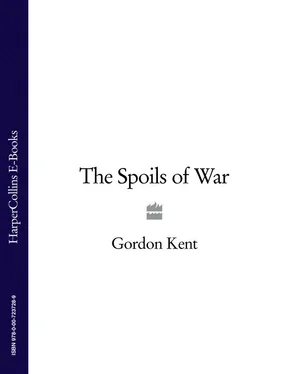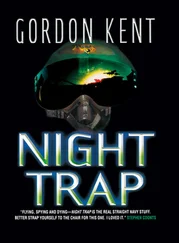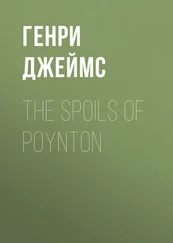Standing on the sidewalk with his left hand on the limo door, Craik waited until they had run down and the smiles had run out and the hands had drooped, and then he leaned in and said, “Fuck you!”
From: The Secretary of State of the United States of America
To: The Minister for Foreign Affairs, the State of Israel The government of the United States wishes to state in the strongest terms that the detention in Tel Aviv of Commander Alan Craik of the United States Navy by agents of the State of Israel is unacceptable. Not only was Commander Craik in Israel with your government’s knowledge and permission, but also he was seeking legal details concerning the death in Israel of a former member of the United States Naval Reserve, Salem Qatib. This treatment of a decorated member of our armed forces is an insult to his honor, to that of his country, and to the memory of the dead man.
The government of the United States wishes the State of Israel to understand clearly that it requires that investigation of the detention of Commander Craik be pursued to a quick and satisfactory conclusion. It also wishes to make clear that it will itself continue to pursue the investigation of the death of Salem Qatib to its conclusion, in which it expects all cooperation.
Ray Spinner was thinking about a pretty woman named Jennifer when his phone rang and a man named McKinnon asked him if he could step around to his office for a sec, please? That McKinnon had an office was enough to suggest his status; he also had a title; but, most to the point, he could end Spinner’s career with a word.
“Sir.”
McKinnon looked up from a crowded desk. He was fifteen years older than Spinner, infinitely more impressive in Washington terms: eight years in State and then Defense in the Reagan administration, four more in the National Security Council and Defense under Bush One; then exile to an Ivy League professorship during Clinton. He had published two books. His name was never in the media—a contradictory achievement in a media-mad town, but one that had put him where he was, because some specialties require reticence.
“Yeah. Shut the door. Sit down.” He made a point of closing a folder, the point being that he was allowed to see it and Spinner wasn’t. But Spinner had had time to make out “Classified Special” and “PERPETUAL JUSTICE.” Perhaps oddly, “perpetual justice” didn’t sound unusual to him; it sounded like a lot of other code names in those days.
Spinner sat. It was like being back in college, he thought, called into the professor’s office because of a bad paper. McKinnon was balding and thus big-domed, unquestionably an “intellectual.” Spinner found himself sweating. Until then, only his father had been able to make him so nervous.
McKinnon handed a single sheet of paper across the desk. “That yours?”
Spinner had only to look at the From and To. It was the blind copy of the message he’d sent Mike Dukas in Naples about the dead Navy guy in Tel Aviv. Suddenly, the message didn’t seem like a very good idea.
“Well, you see—”
“Is that yours?”
“Unnh—yes. You see—”
McKinnon shut him up merely by hunching his shoulders. His jacket was off, revealing a pair of the red suspenders that Spinner so admired. He also wore one of those baggy shirts that you learn to recognize as expensive. He said, “So what’s the story?”
“I got the initial, uh—” Spinner cleared his throat “—initial data that the person in question—the name is there on my message—”
“Qatib.”
“Right.”
“Arab name.”
“I suppose.”
“No ‘suppose’ about it. You don’t understand Arabic? You don’t know Arab culture?”
“Well, my background—”
“Your background is the Navy; I know all about it. I don’t expect much as a result. You were saying?”
“Unnh—the person—Qatib—died in Israel and because, because he had US connections—studied here, Navy reserve—I checked the Purgatory list. He was on it. So I thought, unnh—” He glanced at McKinnon, whose eyes were fixed on him. “I thought I should pursue it.”
“Good for you! Exactly what you should have done. And?”
Encouraged, Spinner told him about NCIS and the dominion of the Naples office.
“Who is this Michael Dukas?”
Spinner thought of lying and saying he’d picked the name out of a directory, but he suspected that McKinnon already knew who Dukas was. This was a test, he decided. The prof already knew the answers. So Spinner said, “He was a nosy bastard who framed me and forced me to resign my commission.”
McKinnon leaned way back in his chair and inhaled deeply, as if he wanted to smell Spinner’s answer. He tapped a pencil twice on his desk and, without looking at Spinner, said, “So, you saw that we needed more data on Qatib. Good. So you dumped it on somebody you don’t like, and sent it over the title of the deputy assistant. Not good.” He looked at Spinner, a comical expression on his face—mouth rubbery and pulled down at the corners: clown grimace. “C minus.”
They stared at each other until Spinner had to look away. He knew he was about to be fired.
“You’re here because your father has clout,” McKinnon said. “Okay, I can live with that. Believe me, you wouldn’t be here otherwise, because a military background is the last thing we need. Correction: second last; what we need last is somebody with a background in intelligence.” He leaned forward again. “You know what’s wrong with military people?”
Spinner tried to think of all the things he’d found wrong. “They’re dorks?” he said.
McKinnon laughed. Actually laughed. “That’s one way of putting it. They’re mediocre. And they’re tentative. And they’re self-seeking. Ranks, medals, privileges. They’re fucking bureaucrats in fancy clothes, and they’re not smart. They’re timocrats.” He looked to see if Spinner knew what a timocrat is, saw he didn’t, smiled with delight. He stood; Spinner suspected that he was reverting to his academic self, that all he lacked was a blackboard. “There are only so many smart people in the world, and they don’t gravitate to the military; if they get into the military by mistake, they soon get out. Therefore, policy can’t be left to the military. They’re like mechanics—they can fix the car, but they can’t design it.” He leaned back against the wall. “Smart people come here. They come here because we recruit them. We’ve been looking at some of the people here for as long as ten years. Why?”
Spinner knew he wasn’t supposed to answer.
“Because people—ordinary people—can’t run a democracy. You know Plato?”
Spinner clawed back through his undergraduate classes and came up with The Republic.
“Right. The current president of the United States is the modern version of the philosopher-king. He is surrounded with a group of special people. Smart people. They must inform him so he can make wise decisions, and they must keep him from getting wrong information that would harm those decisions. They must also advise him on how to manage information about his decisions so that the people will accept them.”
Despite himself, Spinner frowned. Wasn’t there a contradiction there somewhere?
“To advise wisely, to screen out the false, to manage the true. Do you know who Leo Strauss was?”
Spinner, committed now to the truth, shook his head. McKinnon shook his head in response, as if disgusted, but he grabbed a piece of paper and scribbled on it and shoved it across. “Read Leo Strauss,” it said. Spinner said he’d go right out and get some.
Читать дальше












